#johnkeates
Text
Negative Capability
A theory first articulated by John Keats about the artist’s access to truth without the pressure and framework of logic or science. Contemplating his own craft and the art of others, especially William Shakespeare, in one of his famous letters to relatives Keats supposed that a great thinker is “capable of being in uncertainties, Mysteries, doubts, without any irritable reaching after fact and reason.” A poet, then, has the power to bury self-consciousness, dwell in a state of openness to all experience, and identify with the object contemplated.
See Keats’s “To Autumn.” The inspirational power of beauty, according to Keats, is more important than the quest for objective fact; as he writes in his “Ode on a Grecian Urn,” “‘Beauty is truth, truth beauty’—that is all / Ye know on earth, and all ye need to know.” Keats’s notion of negative capability has been influential for those working outside of aesthetics, including scholars such as Roberto Unger who adopted and modified the term for his own work on social theory.
Ref: https://www.poetryfoundation.org/learn/glossary-terms/negative-capability
Negative here is not pejorative. Instead, it implies the ability to resist explaining away what we do not understand.
Rather than coming to an immediate conclusion about an event, idea or person, Keats advises resting in doubt and continuing to pay attention and probe in order to understand it more completely.
Negative capability also testifies to the importance of humility, which Keats described as a “capability of submission.” As Socrates indicates in Plato’s “Apology,” the people least likely to learn anything new are the ones who think they already know it all. By contrast, those who are willing to question their own assumptions and adopt new perspectives are in the best position to arrive at new insights.
Keats believed that the world could never be fully understood, let alone controlled. In his view, pride and arrogance must be avoided at all costs, an especially apt warning as the world confronts challenges such as climate change and COVID-19.
At the same time, information technology seems to give everyone instant access to all human knowledge. To be sure, the internet is one gateway to knowledge. But it also indiscriminately spreads misinformation and propaganda, often fueled by algorithms that profit off division.
This, it goes without saying, can cloud understanding with false certainty.
And so our age is often described as polarized: women versus men, Blacks versus whites, liberals versus conservatives, religion versus science – and it’s easy to automatically lapse into the facile assumption that all human beings can be divided into two camps. The underlying view seems to be that if only it can be determined which side of an issue a person lines up on, there’s no need to look any further.
Against this tendency, Keats suggests that human beings are always more complex than any demographic category or party affiliation. He anticipates another Nobel laureate, writer and philosopher Alexander Solzhenitsyn, who wrote that instead of good guys and bad guys, the world is made up of wonderfully complex and sometimes even self-contradictory people, each capable of both good and bad:
Uncertainty can be uncomfortable. It is often quite tempting to stop pondering complex questions and jump to conclusions. But Keats counsels otherwise. By resisting the temptation to dismiss and despise others, it’s possible to open the door to discovering traits in people that are worthy of sympathy or admiration.
They may, with time, even come to be regarded as friends.
Ref: https://theconversation.com/john-keats-concept-of-negative-capability-or-sitting-in-uncertainty-is-needed-now-more-than-ever-153617
Examples of Negative Capability In Literature
Negative capability can exist due to a willful omittance of specific details, or because there is no right answer available for a particular situation.
Ref: https://www.masterclass.com/articles/john-keats-theory-of-negative-capability-in-writing
Robert Greene on Q everything you believe
Continually questioning yourself your ideas your values where you come from is actually the highest form of human thinking is actually the most creative form of thinking you must not be afraid of it is extremely powerful
The stupidest people are the ones who think they have the right answers who are so certain that they know the truth that actually is a very deep form of human stupidity because our knowledge is always limited and those who think that they know for certain what is true are actually operating out of deep levels of fear and insecurity.
Ref: https://youtu.be/Rj4JuA3RDEQ
Last but not least, you may agree to disagree for this =D
Ref: https://www.instagram.com/p/CmmahnMsLdm/?utm_source=ig_web_copy_link
Be great by Tuesday folks!
2 notes
·
View notes
Text
DEAD POETS SOCIETY - 35TH ANNIVERSARY

I am no artist but I had to draw them...
Thank You DPS, for making our lives extraordinary.
#dead poets society#dead poets fandom#knox overstreet#neilperry#charlie dalton#toddanderson#gerardpitts#stevenmeeks#richardcameron#myniche#deadpoetsociety#welton1959#weltonacademy#carpe diem#Barbaricyawp#johnkeating#o captain my captain#deadpoetssocietyboys#ilovethisfilm#35years#dead poets society fanart
108 notes
·
View notes
Text
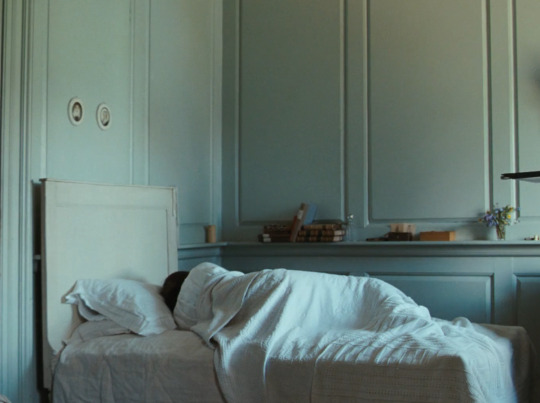
Fanny Brawne’s Room, Bright Star (2009)
290 notes
·
View notes
Photo
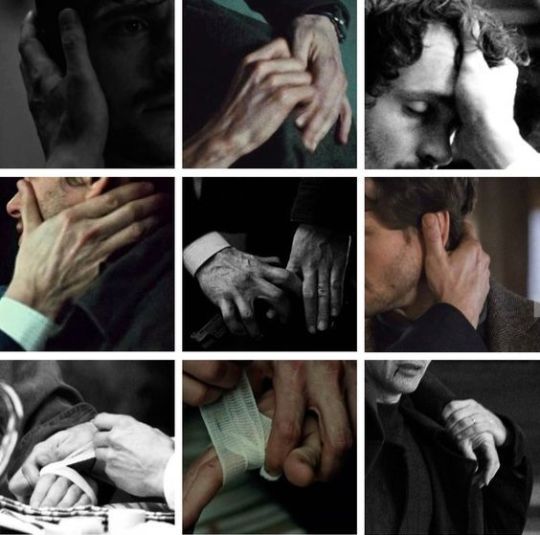
Touch has a memory - John Keats
Hannigram + touching <3
#hannigram#hanniballecter#touch#touching#love#murder husbands#mads mikkelsen#hugh dancy#willgraham#hannibal loves will#will loves hannibal#bryan fuller#achilles x patroclus#patroclus#achilles speaks#dead#death#imissthem#johnkeats#thomasharris
261 notes
·
View notes
Photo

Lamia
8 notes
·
View notes
Photo
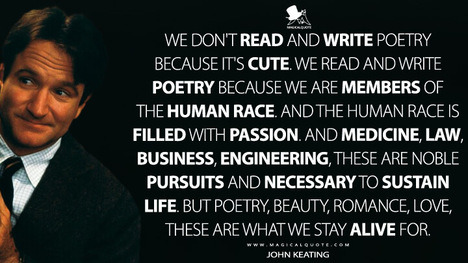
Amazing book!
7 notes
·
View notes
Photo
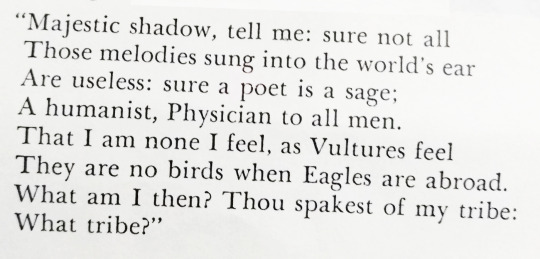
"Majestic shadow, tell me: sure not all
Those melodies sung into the world's ear
Are useless: sure a poet is a sage; A humanist, Physician to all men.
That I am none I feel, as Vultures feel
They are no birds when Eagles are abroad.
What am I then? Thou spakest of my tribe:
What tribe?"
- John Keats
thisiskabe.tumblr.com
3 notes
·
View notes
Text
JOHN KEATS
JOHN KEATS
1795-1821
John Keats was a British poet.
Keats parents died before he turned 15, he trained to be a doctor which is where he gained his medical knowledge.
In 1817, Keats, 21, met poet Charles Brown, 30, who had contacts with numerous poets. Keats moved into Wentworth Place (Keats House) in Keats Grove, Hampstead, England. He initially had friends living there but after his brother died, Brown invited Keats to move in with him. This is when Keats was most productive, ‘Ode to a Nightingale’ was written under a plum tree in the garden. Majority of his poems were written between 1819-1820.
Keats fell in love with Fanny Brawne who lived with her family in the adjacent house and they got engaged.
In 1818, he suffered from a sore throat. His mother and brother both died from tuberculosis. Brown wrote that Keats had coughed and noticed that he was coughing up blood and Keats called it his ‘death warrant’ and said, ‘I must die’. As his health started failing, he was advised to move to a warmer climate, so he left London in 1820 to go to Italy. When he arrived, he continued to cough up blood and was constantly covered in sweat. He would wake up crying, tormented that he didn’t die in his sleep.
Keats, 25, died on 23 February 1821 and is buried the Protestant Cemetery in Rome. His tombstone had no name or date on it, but the words ‘this grave contains all that was mortal, of a young English poet…’
Wentworth Place, today known as Keats House, was used as a home until the 20th century when it was to be demolished. The house was saved and became a museum dedicated to Keats.

#johnkeats #fannybrawne #charlesbrown #keatshouse
1 note
·
View note
Text
Recomendaciones veraniegas: tres poetas para refrescar el alma
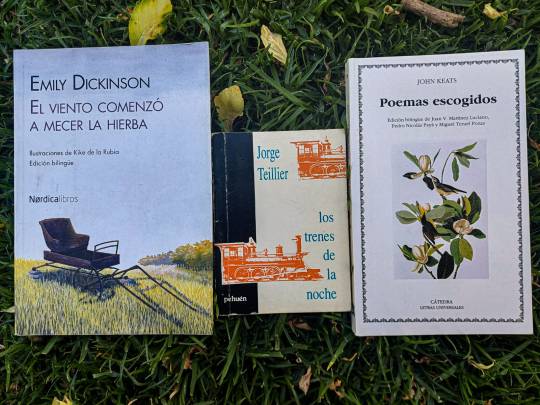
Si ayer recomendamos algunas novelas para acompañar los tiempos de ocio en este verano que ya comienza, hoy toca el turno de la poesía. Y en este caso, más que sugerir libros específicos, los invitaremos a sumergirse en el universo de tres poetas divinos, fantásticos, placenteros. Ideales para abanicarse la mente en las tardes de calor.
La poesía, a diferencia de la narrativa, tiene una magia indescriptible palpitando en sus palabras. Al ser expresión de sentimientos, nos toca en lo más íntimo, en nuestras teclas más desconocidas y profundas. Si lo tuyo, más que leer muchas páginas de una historia, es saborear pequeños bocados de paraíso, de emociones e ideas que te dejen pensando, o que amplíen y purifiquen tu percepción de la realidad, entonces no le des más vueltas: la poesía es lo tuyo.
Partamos con Jorge Teillier, el más apto para quienes fantasean o aman el sur. Su poesía está empapada con la lluvia, los aromas, los paisajes de la zona más verdosa de nuestro país. Es imposible leerlo y no ser transportado hacia los bosques, entre duendes, hadas, y chimeneas humeantes, mientras afuera las gotas caen humectando los campos.
Una de las poetas más delicadas, profundas y conmovedoras de la historia de la literatura universal es Emily Dickinson. A un mismo tiempo simple y compleja, alegre y triste. Sus poemas nos ayudan a comprendernos mejor a notros mismos. Y a observar mejor nuestro entorno.
Finalmente, uno de los poetas más refinados y apasionados que ha dado la humanidad, John Keats, ícono del romanticismo inglés, nos empuja a una exaltación y amor hacia la naturaleza y hacia la vida incomparables. Leer a John Keats es similar a dejarse embriagar por el aroma fresco de las más dulces flores del verano.
Escrito por: Fernando Osorio
redactor de Silvestre & Coqueta.
1 note
·
View note
Link
What do you think about this piece? Let us know!
#graphicdesign#poetryoftheearth#keats#quotegift#johnkeats#poem#poetry#poetrygift#keatsgift#poemgift#keatsquote#literature#literary#literaturegift#literarygift#victorian#romantic#romanticism#pagan#paganism#paganquote
0 notes
Text
Walk With Me
The 4 conversations I had with myself over the course of a two mile walk:
Why won’t you write? What prevents your pen from meeting paper? You need to cultivate the habit of writing. Whatever you hear, whatever you see, whatever comes to mind, whatever profound wisdom you receive.
You see, it’s gotten a bit harder to articulate myself, and I have spent years now thinking so much yet speaking so little. My inner dialogue has subsided because--and I just realized this--I don’t like wasting my words for any reason. I try not to misspeak, to be perfectly and accurately understood. Reading more will help me to recover that gift and strengthen that skill I previously had. The type of writing I create doesn’t matter, but I spend unnecessary time thinking about how to do it correctly. Because correctness brings me fulfillment. I feel that there’s is a certain way that everything is supposed to be said. I want to develop my mind and speech to where every thought I decide to share, and everything that I decide to say, is said and uttered exactly how it is supposed to, so it can be understood how it needs to.
On this walk through my neighborhood about five weeks ago, I confronted laziness. The next question I asked myself, “How did you get here? What keeps you from taking this walk more often?” After scrolling idly on social media for a silly amount of time, I tossed my phone to the side, put on a coat and Crocs, and stormed out of the house as if leaving a heated argument. I decided to be present; no phone, no music, no company. “What keeps you from taking this walk more often?” After all, this is a beautiful place, a beautiful path that I’m walking on, a path that belongs to me, that I have exclusive access to whenever I want. God blessed me with this place, to move through and find whatever I’m looking for.
I realized that I have a lot of reflecting to do while walking along this two mile path, ironically called Legacy. Plenty of gratitude to catch up on. I took a detour off of the path that I had never taken before. The ground was smooth. God had to bring me out of a prior place in order for me be on this smooth, curved, and paved path I’m walking on. And I remember that prior place, and the places before that. I need to look back on the losses, the relationships, the procrastination, the help, the extremely long months of uncertainty that consistently bring tears to my eyes. I need to review what situations I was up against at the time God did what he did, so I can then look forward with real, true, fortified expectancy.
I observed that my day to day life had become myopic. I rarely stepped outside unless absolutely necessary. Life outside of work had become sedentary for the most part, so giving my body some movement, my eyes some sunlight, and my mind some exposure to natural structures that I rarely take the time to just look at, felt good. I hoped to find a connection between why I won’t walk, why I won’t write, and why I won’t pray, triangulate the three, and then start to make some changes. Even though I was looking for reason’s why I wasn’t, I didn’t need a reason in order start doing these things every day.
“You think you can pick up that rock?” I asked myself. About two minutes into the detour, and I approached a large rock off to the side of the trail. Out of deep thought or simple amusement, I bent down and tried to lift up focusing on my legs. I hoisted about 5 times, shifting it right and left to loosen it from the ground it may have been partially buried into, then pulled a sixth time. I figured that with the proper form and sheer will, I’d be able to lift it no matter how heavy. Never mind the fact that I hadn’t done so much as a push-up in months, I could lift this rock with innate strength, mental fortitude and every ounce of effort and desire I had.
I quit trying, and continued my journey through this new place I had been living in for five years. I probably could have controlled my breath better, but it’s too heavy for me right now. The most stubborn and irrational opinion I hold is that I should be able to know and do everything, without having to learn or practice anything. Does that make sense? A backflip, cooking, coding, painting a mural of a landscape, swimming, skating, or playing an instrument, whatever it is, I should know how to do it if I have at least seen it be done. I don’t live by this thought, but it gets in my way very often. My failed attempt to lift that rock reminded me of that mindset. If I see a rock and I want to and believe that I can lift it in my current state of being, I should be able to. If I see a piano and I want to and believe that I can play it, I should be able to in my current state of mind. If my current level of effort and capability isn’t enough to succeed, I’m perplexed and a bit disappointed, but accepting. These are simple truths I’m encountering; there’s nothing profound about finding out that I have to get stronger if I want to lift heavy objects or read if I want to learn new things. But in that moment it let me know that I struggle with accepting the growth and learning process when it comes to certain thing in life. The time, persistence, and repeated failure aren’t very appealing, these skills should already be present within me, this strength should already exist inside me. So what gives?
“Have you ever been in a convertible?” I’ve reached the beginning of the neighborhood, passing a red and off-white vintage Buick convertible while taking the crosswalk in front of the Bellingrath subdivision. There are a few small experiences in my life that I haven’t had yet, but think about from time to time. Like riding in a convertible and wondering what that feels like. The thrill would be immense I’m sure, but would it last very long? How satisfying would it be for me? The expectation says very, but reality probably says only slightly. I could go to a dealership and test drive one right now, I may very well enjoy it. But am I content with someone else providing this experience? If not, my desires require faith in God, coupled with a committed work ethic and discipline to equip myself with the means to bring them about. Much like picking up that rock in my path requires additional strength and power, obtaining that convertible for whenever I need to relive that experience requires a different and better place financially.
Fulfillment. . .That’s all I am searching for in this life, all I’ve been pondering on while taking this walk. I find fulfillment in writing, in being able to articulate and express thoughts through words. My fixation on doing it “right” or “correctly” is still a mystery, but is the primary culprit I can point to for why I don’t do it more. This story or essay, for one, isn’t the best I can do. It took me entirely too long, and I’m not at all satisfied. But after seeing all the improvements I can make, I’m glad to have written it. My ability to be better conflicts with my reluctance to do what it takes to get better. I have a small fear of effort and time spent towards anything that doesn’t bear fruit. The effort is abundant, but the older I get the more time seems like a finite resource.
I read a retelling of a conversation between Tom Hanks and director Bob Zemeckis, while filming Forrest Gump for the 27th day in a row. He asked Bob if anyone would care about this film, to which Bob replied, “It’s a minefield, Tom. You never know what’s good. . .it’s a minefield, it’s a d*mn minefield! We may be sowing the seeds of our own destruction!” Zemeckis’s words held true for every movie he worked on. It’s jarring, yet very telling that the feeling of uncertainty is the stickiest memory for the 5th highest-grossing actor of all time. John Keats explained in a poem that rarer than talent or work ethic is the ability to step into and push through doubts and uncertainties. “In 1817, Keats wrote a letter to his brothers on this: ‘At once it struck me what quality went to form a Man of Achievement. . .Negative Capability.’” The ability to sit with uncertainty, and spend months or years “in the minefield that is working on something,” knowing that not a soul may even care. Not for the sake of money or fame, not as a means to an end or even for the sake of victory, but for the sake of doing it. As for me, the work of building strength and lifting heavier has to be the win, not picking up that rock. The work of building wealth and persevering has to be win, not riding in the convertible. The work of writing daily, learning more, growing and gaining knowledge and skills that can never be taken from me, has to be the win, not doing it right or correctly.
The work has to be the win.
0 notes
Text
DEAD POETS SOCIETY TRIBUTE- TO 35 YEARS
Couldn't post this but here it is after all these days :)
To DEAD POETS SOCIETY - THANK YOU ONCE AGAIN FOR MAKING OUR LIVES EXTRAORDINARY
To 35 years of TO INDEED BE A GOD :)
Carpe Diem guys.
#dead poets society#dead poets fandom#neilperry#toddanderson#charlie dalton#gerardpitts#stevenmeeks#knox overstreet#richardcameron#johnkeating#dead poets society fandom#deadpoetssocietysad#deadpoetssocietyedit#deadpoetssocietyplaylist#deadpoetssocietyboys#welton1959#weltonacademy#Castelonthehill#theydeserveeachother#they deserved better#they deserve the world#they deserve to be happy#carpe diem#toindeedbeagod#Makeyourlivesextraordinary#Deadpoetssociety#dps edit#dps headcanons#dps boys#dpsfandom
27 notes
·
View notes
Text
Renga competition: Wallace Stevens competes against John Keats. Herman Melville is the judge.
Herman Melville: Ladies and gentlemen, welcome to this evening’s renga verse competition. Our topic for the night is The Flynn Effect. Competing tonight we have two esteemed poets – Wallace Stevens and John Keats. Our judge for the evening is yours truly – Herman Melville. Let’s begin!
Wallace Stevens:
Intelligence on the rise,
The Flynn Effect in our eyes,
Minds expand, knowledge shall…
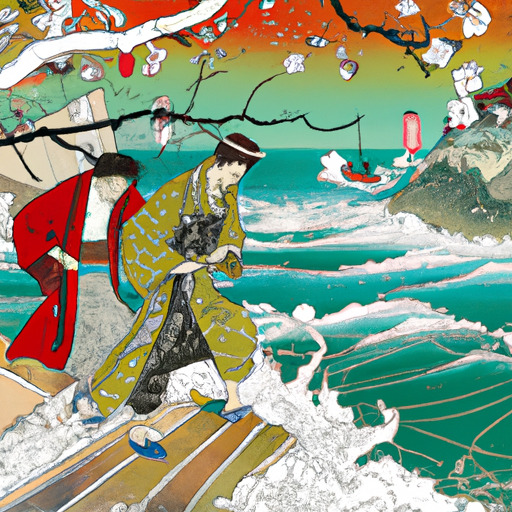
View On WordPress
#achievements#creativity#evolution#goodnight#growth#HermanMelville#imagination#intelligence#JohnKeats#judging#knowledge#mindsexpand#poetry#RengaVerseCompetition#TheFlynnEffect#WallaceStevens
1 note
·
View note
Text
Ode to a Nightingale by John Keats (subtitled excerpt - PART 8) ▶️FULL VIDEO👉
FULL VIDEO▶️ https://youtu.be/PfAoWheGkPo
"Ode to a Nightingale" is about Keats's perception of the conflicted nature of human life, explorings themes like pain / joy, feeling / numbness of feeling, life / death, mortal / immortal, and separation / connection.
Follow us on www.youtube.com/@RelaxArtWorld
#Ode#to#a#Nightingale#by#John#Keats#subtitled#excerpt#PART8#OdetoaNightingale#JohnKeats#FULL#VIDEO#YouTube#Poem#Poet#Poetry#Poems#Poets#Relax#Art#RelaxArt#RelaxArtWorld
1 note
·
View note
Text
BA in English Literature – (Bachelor of Arts in English Literature)
Bachelor of Arts (BA) in English Literature is an undergraduate degree program that focuses on the study of English literature and language. Students who complete this course will have a thorough understanding of the English language, its history, and its literature. The course aims to develop students’ literary and linguistic understanding as well as their analytical, critical thinking, and…

View On WordPress
#BAinEnglishLiterature#EnglishLitMajor#ClassicLiterature#ContemporaryLiterature#Shakespeare#JaneAusten#CharlesDickens#VirginiaWoolf#Tolkien#BronteSisters#WilliamBlake#JohnKeats#PercyByssheShelley#Romanticism#VictorianEra#Modernism#Postmodernism#FeministLiterature#RaceandLiterature#ColonialLiterature#WorldLiterature#LiteraryCriticism#LiteraryTheory#CriticalThinking#WritingSkills#ResearchSkills#EnglishLanguage#ReadingList#BookwormLife#NeverStopLearning.
0 notes
Text

"The poetry of the earth is never dead" John Keats
💚💚💚 Happy Earth Day. May it always be the incredible place that houses us as temporal guests. Let us make it a better place with each day that passes🦋🌹🥀🐝🌎🌞🌙hopefully we will stop destroying it too💔🤔
Painting: 'Spring Eternal' by @tinorodriguezartist & @virgoparaiso
#tinorodriguezartist #virgoparaiso #earthday2023 #earthday #johnkeats #paradiseonearth #forevergreen #springskulls #springeternal #springequinox #greenparadise #skullartist #skullobsession #skullfan #skullpainting #botanicalskull #flowerskull #metamorphosis #mementomori #surrealvision #surrealism #magicrealism #symbolism #spiritualgarden
56 notes
·
View notes